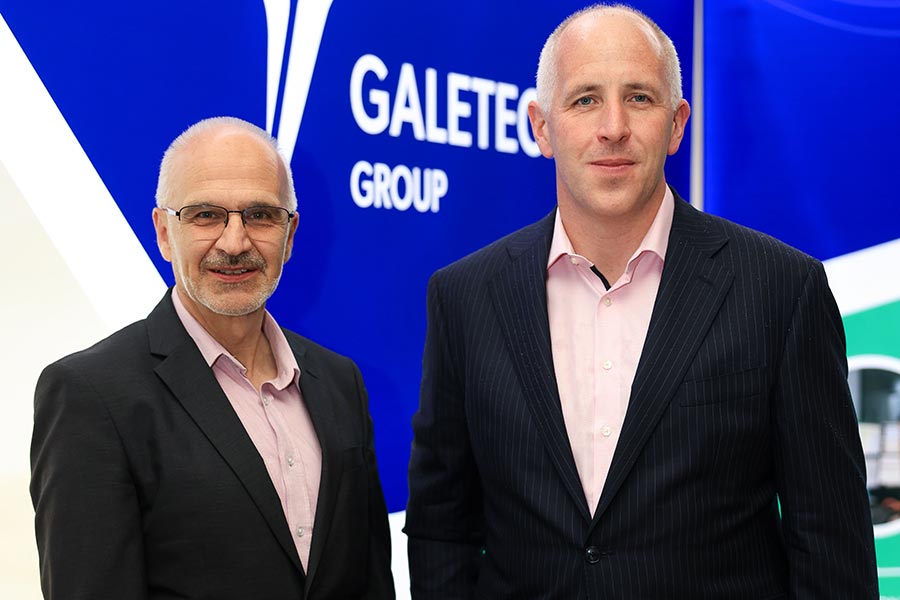The Open Doors Initiative sees businesses offer training and job opportunities to marginalised groups, writes Emily Styles
As employment opportunities tumble in Ireland due to the coronavirus lockdown, first in the firing line are refugees and asylum seekers, people with disabilities and under-25s with educational barriers. Their path to employment is always difficult and the Open Doors Initiative is endeavouring to provide assistance.
Open Doors was established in 2018 and acts as a bridge between organisations that deal with marginalised groups and the corporate sector. On the employer side, there are now 45 companies involved, including Cpl, Dawn Meats, AIB, Dalata Hotels, Diageo and Sodexo.
Open Doors chief executive Jeanne McDonagh explains: “The initiative supports marginalised groups in accessing training, work experience, mentoring and employment. It is led by people with lived experience in disability and migrant issues, and we want to expand that expertise directly within the communities we are helping.
“Workplace participation remains very low among certain groups and there are many barriers to employment. By working with other companies and organisations to create a new government and private sector initiative, Open Doors strives to increase opportunities for people in workplaces with an inclusive ethos.
“We empower employers to be disability and culturally confident by imbuing acceptance and awareness. We help create various pathways to gain employment, and helps marginalised people into a progressive career.”
Employers improve employment opportunities through a mix of training programmes and skills workshops, work experience and apprenticeships, and other supports. More than 1,900 people have been assisted by Open Doors programmes, with 130 people securing full-time employment. Open Doors taps supporting companies for volunteering, with the most recent tally amounting to 22,000 hours.
McDonagh adds: “Marginalised groups have many people who are creative, innovative, resilient and adaptable problem-solvers because of the difficulties they face daily. The untapped talent pools and potential target markets are being opened up by our participating organisations.”
Research carried out by Open Doors found that 95% of participants who engage with the training feel more confident about applying for a job and attending an interview. The benefits for businesses and participants is lasting too, with three-quarters of those who gained full-time employment through Open Doors managing to sustain it.
Liferay International, a digital experience platform, is enthusiastic about refugee hires at its Dublin office. Veronica Rodriguez Cabezas, director of operations, explains that the company has a programme that hires one refugee at a time through a short-term contract.
“This has truly been a mutually beneficial relationship,” she says. “The people we’ve employed have gained both hard and soft skills that will help them advance in the world of business, whether they choose to remain at Liferay or move on to another opportunity, and we’ve gained great talent that has literally improved our bottom line.
“Just as important, the presence of members of the refugee community in our workforce has enriched the diversity and experience of our team and helped us to better mirror both the society in which we operate and our pool of potential customers. Hiring refugees is not an act of charity. It’s a decision that makes good business sense and benefits the communities in which private enterprises operate.”
ODI Report
Open Doors Initiative has published a new report, ‘Supporting People from Marginalised Communities into Employment’. This highlights the multitude of organisations operating in the employment support space; the complexity of the welfare support system; the diverse array of overlapping programmes available to support labour market activation; and the lack of coherent national strategies that could offer structure and clarity.
According to ODI chairman Oliver Loomes: “The business community is willing to play its part, but we need further government support to help create better and more diverse workforces.”
The report offers nine recommendations:
- Build dedicated online hubs
- Design and implement national strategies
- Promote entrepreneurship
- Secure ring-fenced funding
- Increase government percentage of diverse hiring
- Create a dedicated recruitment portal for employers/employees
- Establish a largescale mentoring programme
- Undertake a skills audit of people in Direct Provision and with disabilities
- Maximise access to hardware, WiFi and training in digital skills.
Photo: Liferay International’s Veronica Rodriguez Cabezas says hiring refugees makes good business sense












